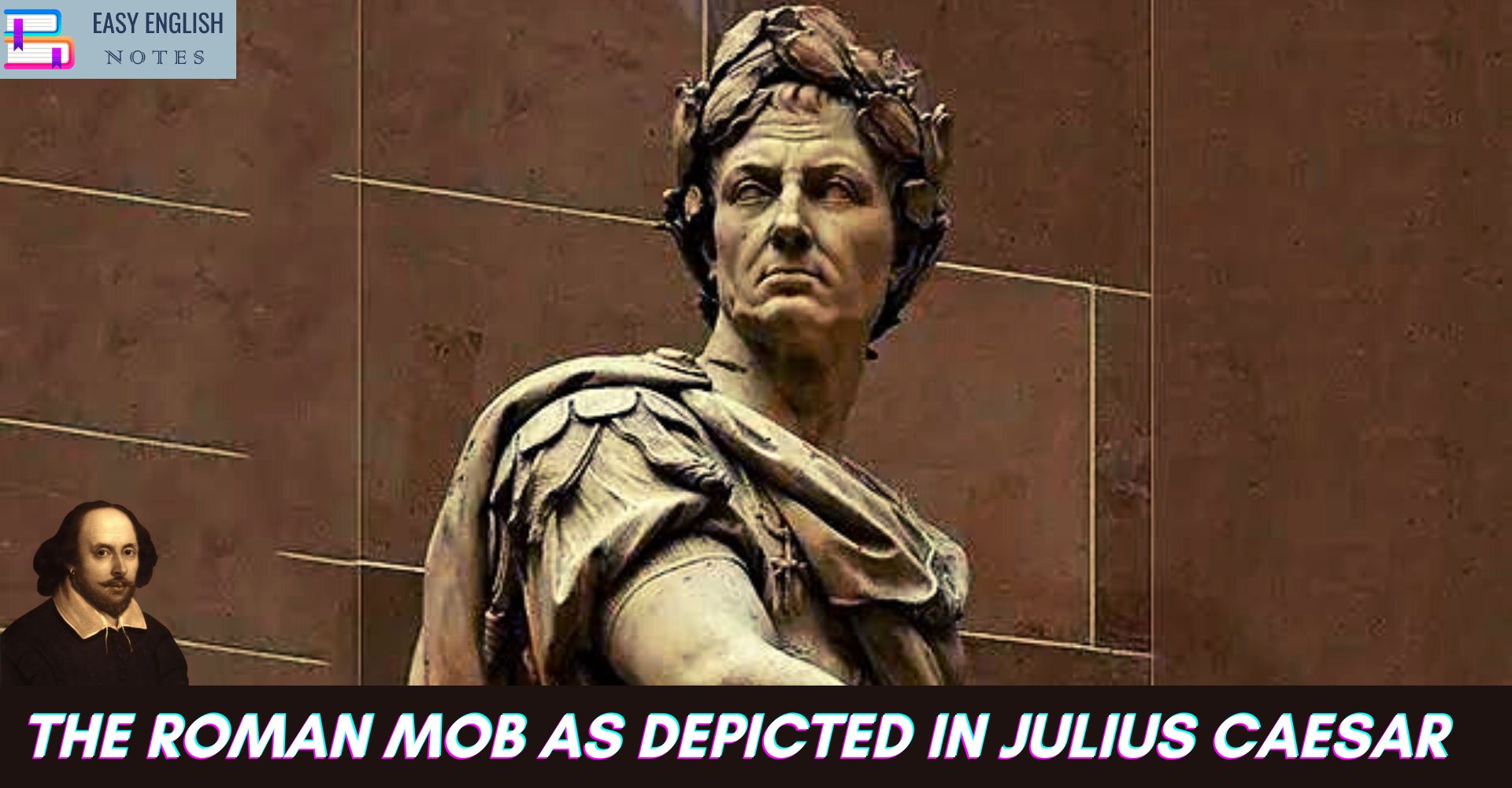In Julius Caesar, Shakespeare has attempted to give a realistic picture of the Roman people of the period. The portrayal of the mob indicates the sway of events considerably influenced by the populace. In the words of Stanley Wood, “The citizens and commoners are represented by Shakespeare as being a somewhat mean spirited crowd, whose base metal is easily swayed this way and that. They are fickle and irrational, possessing little of that spirit of freedom that characterised their ancestors. Childish in their love of shows and their spectacles, sympathies are readily moved and they are formidable only when their deepest passions are aroused.”
As the play opens, we are introduced to the Roman mob. The citizens have assembled to honour Caesar and to rejoice in his triumph. In fact, Shakespeare stresses the mental characteristics of the mob as fickle, capricious, excitable, emotional, thoughtless and violent. When the Tribunes take them to tasks for coming out to strew flowers in the way of Caesar, and to rejoice in his triumph on his return from the campaign against the sons of Pompey whom they had honoured by their presence on a similar occasion, they have nothing to say in reply and they “vanish tongue tied in their guiltiness.” It may also be noted here that the feelings of a sort of contempt have been aroused for the mob. Casca contemptuously speaks of this crowd as the “rabblement” with “chopped hands” and “sweaty nightcaps” and “stinking breath”. Casca says that he was even afraid of opening his lips for fear of “receiving the bad air.”
Also Read :
- Compare Hamlet with Macbeth, Othello and other Tragedies
- A Short Note On The Use Of Imagery In Shakespeare’s Sonnets
- Prologue to Canterbury Tales – (Short Ques & Ans)
The Roman mob is more emotional than rational. Their fickle-mindedness and unprincipled behaviour shows how easily they are swayed by any hero who comes before them. After the murder of Caesar, at first they are against the conspirators directly but when Brutus makes his learned speech, they are satisfied and are full of applause for him, although they do not understand a word of it. And when one of them expresses his love and regard for him by crying out, “Let him be Caesar”, Brutus is shocked. When Mark Antony starts speaking, they soon veer round to the side of Caesar and at last they rush out to fire the traitors houses:
“We’ll burn his body in the holy place,
And with the brands fire the traitors’ house.”
All this proves that the mob is no respecter of personalities. With them the hero of today is the villain of tomorrow. Abstract ideas do not bother their heads. They must have a hero to worship, they want to strong benevoled despot like Caesar for they are anti-republican in their sentiments. They are violently emotional. Once they are roused into fury, they are up to anything. This is illustrated in their insane murder of Cinna, the poet. In Plutarch the mob commits the bonfire mistake for taking Cinna the poet for Cinna the conspirator. Shakespeare has added an extra touch of brutality to their crime by murdering the innocent poet, Cinna, merely because he happened to have the same name as the great conspirator, Cinna.
It has been observed by several critics that the general trend of Shakespeare’s attitude towards the mob is lack of sympathy for the populace. The picture of the populace as portrayed in the play is quite at variance with the modern spirit of democracy, which induces us to regard what is base, humble and lowly in birth, lineage and condition of life as their misfortune rather than their own fault – an attitude of mind which teaches us to look upon the com- mon people with pity rather than contempt. We should however, remember that it would be uncritical and unfair to judge an Elizabethan drama from a modern point of view. In this regard the views of Hudson are noteworthy : “The common people, it is true, are rather easily swayed hither and thither by the contagion of sympathy and of persuasive speech yet their feelings are in the main right and even their judgment in the long run is better than that of the pampered, Roman aristocracy, inasmuch as it proceeds more from the instincts of manhood. Shakespeare evidently loves to play with the natural, unsophisticated, though somehow childish heart of the people, but his playing is always genial, and human-hearted with a certain angelic humour in it that seldom fails to warn as towards the subject. On the whole, he understood the people well.”
PLEASE HELP ME TO REACH 1000 SUBSCRIBER ON MY COOKING YT CHANNEL (CLICK HERE)











